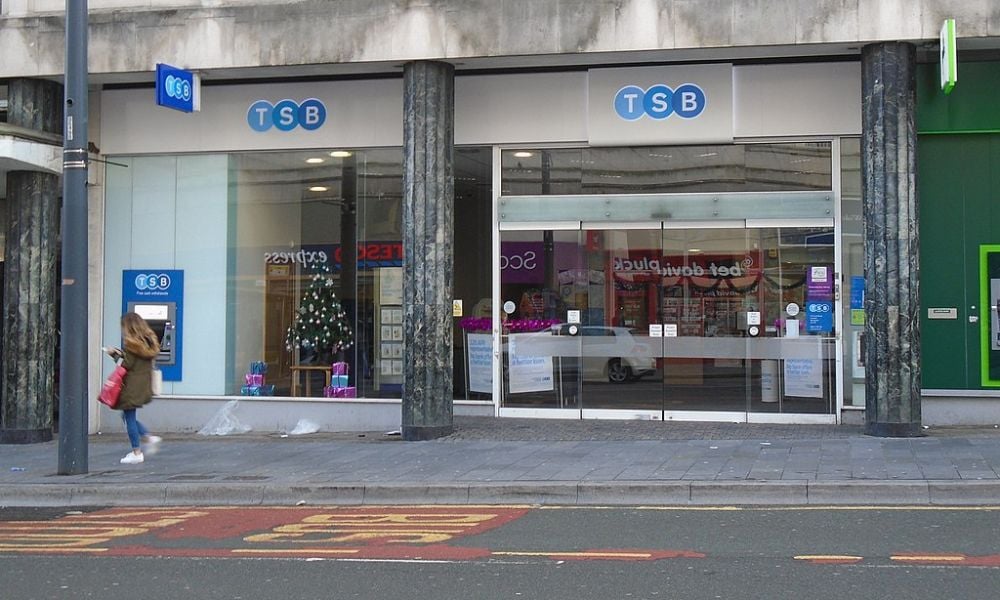Thousands of ‘mortgage prisoners’ lose court battle with the bank that used to like to say 'yes'

One of the country’s top ten lenders has just had a major win in a case bought by thousands of ex-and current customers. A High Court ruling has determined that TSB Bank did not violate the terms of its contracts with over 2,000 homeowners who claim to be "mortgage prisoners."
The borrowers were initially Northern Rock clients but when the lender failed, as part of the recovery their mortgages were ‘sold’ to the Edinburgh based bank. Their lawsuit argued that they had been unfairly charged higher interest rates, leaving them unable to switch to better deals. The group alleged that the bank charged a standard variable rate (SVR) that was 2.29% higher than TSB’s own rate, making them, in their own words, financially trapped.
At the heart of the case are the "Whistletree" mortgages—those previously managed by Northern Rock and now overseen by TSB. TSB created a special unit with that name for all the Northern Rock mortgages. The claimants assert that they were charged rates far above the market standard and were forced to either reapply for a new mortgage or stay locked into higher payments.
In reality, many were unable to switch due to failing affordability assessments after mortgage rules were tightened in 2014.
Despite these grievances, TSB's legal team argued that the claims were "plainly misconceived" and that applying different rates to different customers based on risk profiles is a standard feature of the mortgage industry.
Judge Nicholas Thompsell ruled in favour of the bank, stating that TSB had not breached the "express terms" of the mortgage contracts, noting that the Whistletree SVR is essentially a continuation of Northern Rock's original SVR.
“The defendant has not breached the express terms of the claimants’ mortgage contracts by charging the claimants interest rates based on the Whistletree SVR and not on the TSB SVR,” Judge Thompsell explained in his 49-page ruling. He clarified that TSB was merely continuing the rate structure previously set by Northern Rock.
Following the ruling, a spokesperson for TSB expressed satisfaction, saying, “We welcome the court’s decision today, which recognises that TSB acted in accordance with the terms of Whistletree mortgage contracts.”
While the ruling was a setback for the claimants, their legal representative, Matthew Patching of Harcus Parker, highlighted that the judge acknowledged the challenges faced by the homeowners since their mortgages were taken over by TSB. Although disappointed by the preliminary ruling, the claimants are preparing for the next stage of the legal process, hoping for a more favourable outcome in a future full trial.
TSB pointed out that since 2016, more than two-thirds of its Whistletree customers have either switched to a different mortgage product or paid off their loans, and it reminded borrowers that they can switch products at least once a year.
Northern Rock began as a building society, formed in 1965 through the merger of two Newcastle-based societies: Northern Counties Permanent and the Rock Building Society. Over the next few decades, Northern Rock expanded rapidly by absorbing 53 smaller building societies, making it one of the region’s financial powerhouses.
In 1997, the company decided to demutualize, transitioning from a building society to a bank. It floated on the London Stock Exchange, distributing shares to its members, and quickly established itself within the financial sector.
By the early 2000s, Northern Rock's growth strategy was fuelled by borrowing heavily from wholesale markets to finance long-term mortgage lending. This risky approach left the bank vulnerable when the global financial crisis hit in 2007. Facing liquidity issues, Northern Rock became the first major British bank in over 150 years to suffer a bank run as customers rushed to withdraw their savings. The bank’s reliance on short-term borrowing to fund long-term mortgages exacerbated its collapse.
Despite seeking government support, Northern Rock was unable to secure a commercial buyer, leading to its nationalisation in February 2008. The UK government took over the struggling institution to prevent its insolvency, but this action resulted in shareholders losing their investments, some of whom claimed the government had failed to offer adequate compensation.
Following its nationalisation, Northern Rock was split into two entities in 2010. Its more stable retail and savings operations were sold to Virgin Money in 2012, while its riskier mortgage assets remained in public hands under the renamed Northern Rock (Asset Management), later sold to Cerberus Capital Management in 2016.
The Northern Rock Shareholder Action Group continues to campaign for compensation for those affected by the bank’s nationalisation during the 2007–2008 financial crisis.
Photo credit Rodhullandemu This file is licensed under the Creative Commons Attribution-Share Alike 3.0 Unported license.



